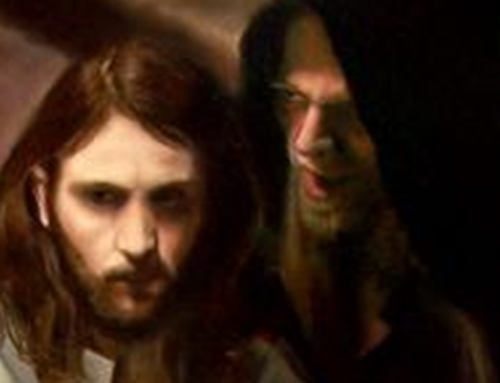
The above audio file contains the sermon and part of the rest of the worship service held in the Scottish International Church in Rotterdam on Sunday 28 September 2020. Due to technical issues with the recording, parts were inaudible or hard to understand. These were removed. The full version can still be found on Kerkdienstgemist.nl
During one of our holidays, in Italy to be precise, we missed our plane going home, but our suitcases were already on the plane. They managed to unload them before the plane departed, but retrieving them took so much effort and time, that we were too late to book the next plane, and we ended up staying two extra days in a rather boring place near the Milan airport. Travels are known for their unpleasant surprises, and are not always as relaxing as we like to think. I feel for all those who were caught off guard by closing borders or other restrictions due to corona risks. Especially those who had to go in quarantine, those on board of cruise ships, and especially those in refugee camps.
The journey of Israel to the promised land can also be seen as a series of setbacks. As such it is a powerful symbol of what we can experience in our lives. Even if we think we escaped from a dire situation, that doesn’t mean our dreams are always fulfilled soon after. There are many detours and tests on the way. And some goals may only be achieved in another generation or when a new heaven and a new earth will be created, as foretold in the Bible. So how can we deal with these disappointments and tests? One way is learning from past experiences and especially those recorded in the Bible. I believe the Exodus story was written for us to reflect on a number of situations which are universal. Paul says in his 1st letter to the Corinthians, “these things happened unto them by way of example; and they were written for our admonition, upon whom the ends of the ages are come.”
The first thing to note is that Moses was not a king, but a prophet. His encounters with God had given him a vision and hope for the future. And although the people of Israel had already witnessed many miracles, they didn’t seem to understand their true significance. Maybe they did not make the connection with the God of their forefathers, Abraham, Isaac and Jacob. My impression is that they were more thinking in terms of a god of Moses, a God controlled by Moses, in the way that Egyptian priests tried to control the Egyptian gods. This probably led them to believe that the miracles were a series of tricks, rather than signs of Gods goodness towards them.
That would explain why they complained again, so soon after the first time they ran out of water. For only a few weeks before, as described in chapter 15, God had changed bitter water into drinkable water. This was at a place called Marah. So they probably thought, why doesn’t Moses press that magical button again? They obviously didn’t share Moses’s vision that God would provide. Moses’ optimism may even have fueled their anger. What they needed was action, not hope. The mob was so angry, that Moses felt he was about to be stoned. His authority lasted only as long as he appeared to provide technical solutions to immediate problems. His prophetic role, to give people hope for the future, was not recognised.
Doesn’t that sound familiar? What most people want today, from their governments and institutions as well as from their spiritual leaders, is immediate relief from incidents, from certain material problems. When a virus is going round, we want safety. When prices go up, we want loans. When crops fail, we want insecticides. When a neighbouring country has a dictator, we want sanctions and war. When fossil fuel becomes a problem, we want another source of energy, but we won’t use less. When we are confused, we want an explanation from an expert. And a pastor should be able to tell us why something bad happened.
And so, for every problem we expect precisely one solution. We may disagree about the solution, but we usually only have one recipe per problem. And that recipe hardly every changes. People find it hard to see the connection between things. Nowadays, nearly everyone has become a specialist. This frequently results in short-sighted solutions, which often cause new problems. Only a few of us can see the larger picture in time. I wonder what would have happened if the Israelites had indeed, by way of a “solution”, stoned Moses? I don’t think there would have been a Jewish religion!
Moses made it clear to the Israelites that they were in fact challenging God. Could it be that we are sometimes challenging God by insisting on technological and magical solutions? Is it not a kind of pride to think we can live forever by inventing a sufficient number of vaccines? And are we sure that would not cause other problems, especially if this involves modified DNA? Of course the concerns about our safety are legitimate, and it is reasonable and even our responsibility to look for solutions to pressing problems. But what do we see as the most pressing problem? The Israelites were fleeing from slavery in Egypt, but they had almost sacrificed their newly found freedom. They had forgotten that peaceful coexistence and cooperation were conditions for reaching their final goal. What should have mattered most was a willingness to invest in the future instead of competition, rivalry and instant gratification.
Today this is at least as important. A democracy will only work if the people take responsibility and if the government lets them take responsibility, instead of providing magical solutions. If either party does not play its proper role, mutual trust will be damaged and we risk returning to more brutal kinds of society. It is crucial that both parties have a vision, which goes beyond material needs and physical health. And as a church we need to hold on to our prophetic voice, too.
Similar themes can be found in our gospel reading for today. First, Jesus’ authority is questioned. Specialists refused to accept that there might be other interpretations of the law than their own. Jesus views were regarded as just personal ones. What gave Him the right to deviate from the standard solutions? Evil was to be fought by ever stricter adherence to the law, by more and more detailed and technical rules, from a series of specialised rabbis. Jesus disagreed. Great evil had been done in the name of the law. Keeping up appearances and giving people what they expect, was simply not enough. Jesus didn’t play their authority game anymore. His leadership was not about telling people exactly what to do, but about taking them seriously, looking at their deeper needs.
In the parable of the two sons this becomes even clearer, because there, Jesus expects the same, more responsible, attitude from us. Son number one at first refuses to do as his father asks, but that doesn’t matter, because in the end he does the right thing. So it is not compliance that matters, but responsibility. The right thing doesn’t always look polished from the outside. But it is the other, more legalistic son, which is the problem. He agrees with the authorities, wears a face mask and keeps a meter and a half distance, and tells everyone to do the same. But he doesn’t mind if people die from loneliness, crops are no longer harvested, hope is no longer given, prayers are no longer offered. The real work and the longer term goals have snowed under. And the magical solutions he trusts may not even work.
You will realise that, just like in the parable, I have painted a rather black and white picture. Reality is of course much more complex. But we must not fall into the trap of following the same idols as those who have no knowledge of salvation. In the end, our hope is in Christ Jesus, and not exclusively in human attempts to create an ideal world. In the past, all such attempts have either failed or produced massive inequality. When Moses was asked to produce water from the rock, there was something that made it special, more than just a discovery or an invention. God stood on the other side of the rock, so that Moses, when he used his staff, would have had his eyes on God. In the same way we have the option to keep our eyes on Jesus, whatever decision we make and whatever task we have. That is to ensure that we will care for everyone, as Jesus did. When did Jesus ever betray the needs of the poor in order to save the rich? Never. He always reminded us to keep looking at the larger picture.
So, when there is a problem, let us not ask like the quarreling Israelites, “Is the Lord among us or not?” Know that He is among us, even as we fear death. Christ said, “Do not be afraid of those who kill the body, but cannot kill the soul”. We could expand that to not being afraid of anything that can kill the body. What matters most is our soul, that is our whole being, which includes our attitude towards God and all His creatures. Elsewhere He says, “Whoever tries to save his life will lose it”. What message could that carry for the problems we are in right now? Think about it. But whatever we do, let’s keep our eyes fixed on Jesus, who is the rock of our salvation and from whom life giving waters flow. Amen.




Leave A Comment